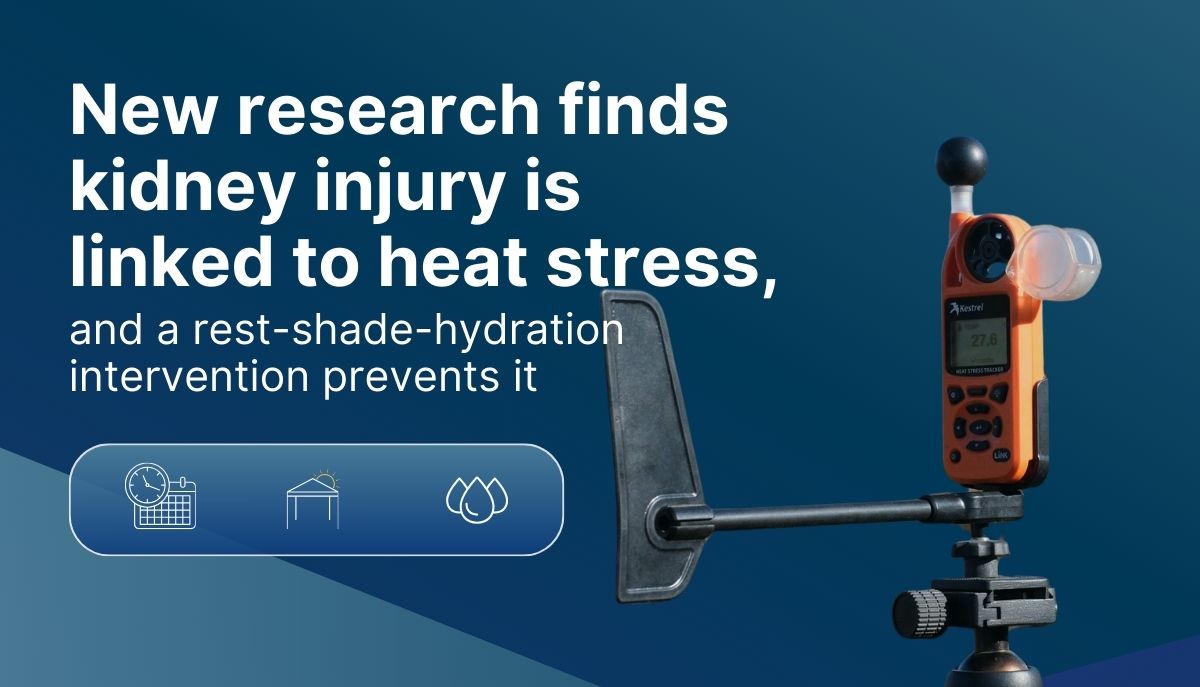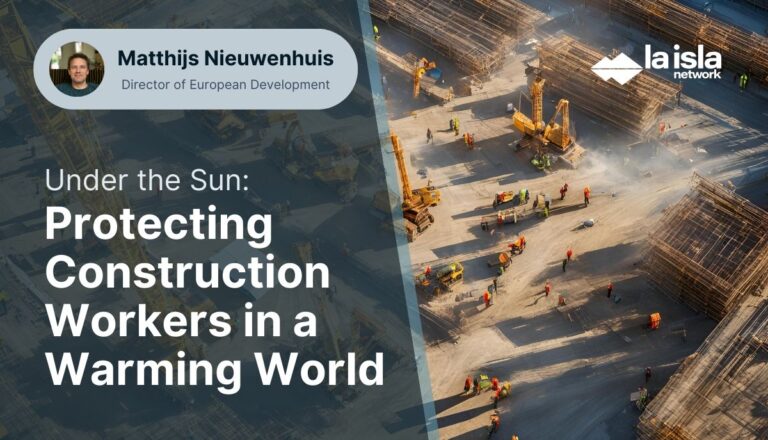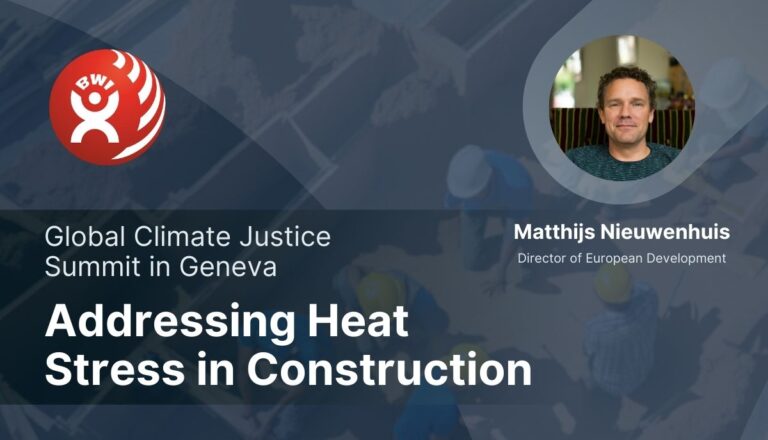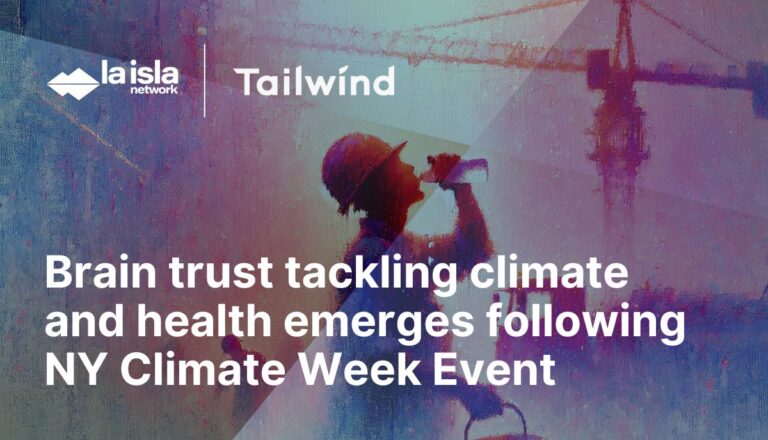New research from La Isla Network shows that workers at a Nicaraguan sugarcane mill — many of whom perform heavy work exposed to the sun — face a risk of acute kidney injury from physically demanding work in high heat. The study also found that a rest, shade and hydration intervention reduced incidents of acute kidney injury.
Acute kidney injury is a contributor to chronic kidney disease. Epidemics of chronic kidney disease have been identified among young and otherwise healthy Mesoamerican workers. Similar epidemics have been found in Nepal, among returnee labor migrants from the Middle East and Malaysia. Both acute kidney injury and high occupational heat stress are the suspected drivers behind these epidemics. The new study is shedding light on the epidemic, how to solve it and how to prevent it.
The study found that as temperatures increased, more workers at the sugarcane mill were diagnosed with acute kidney injury at the mill hospital.
Heat stress is measured using wet bulb globe temperature (WGBT), taking into account temperature, humidity, wind speed, sun angle and cloud cover. Each 1°C increase in WBGT was associated with an 18 percent higher rate of kidney injury on the same day. Workers often showed symptoms of headache, fever and nausea.
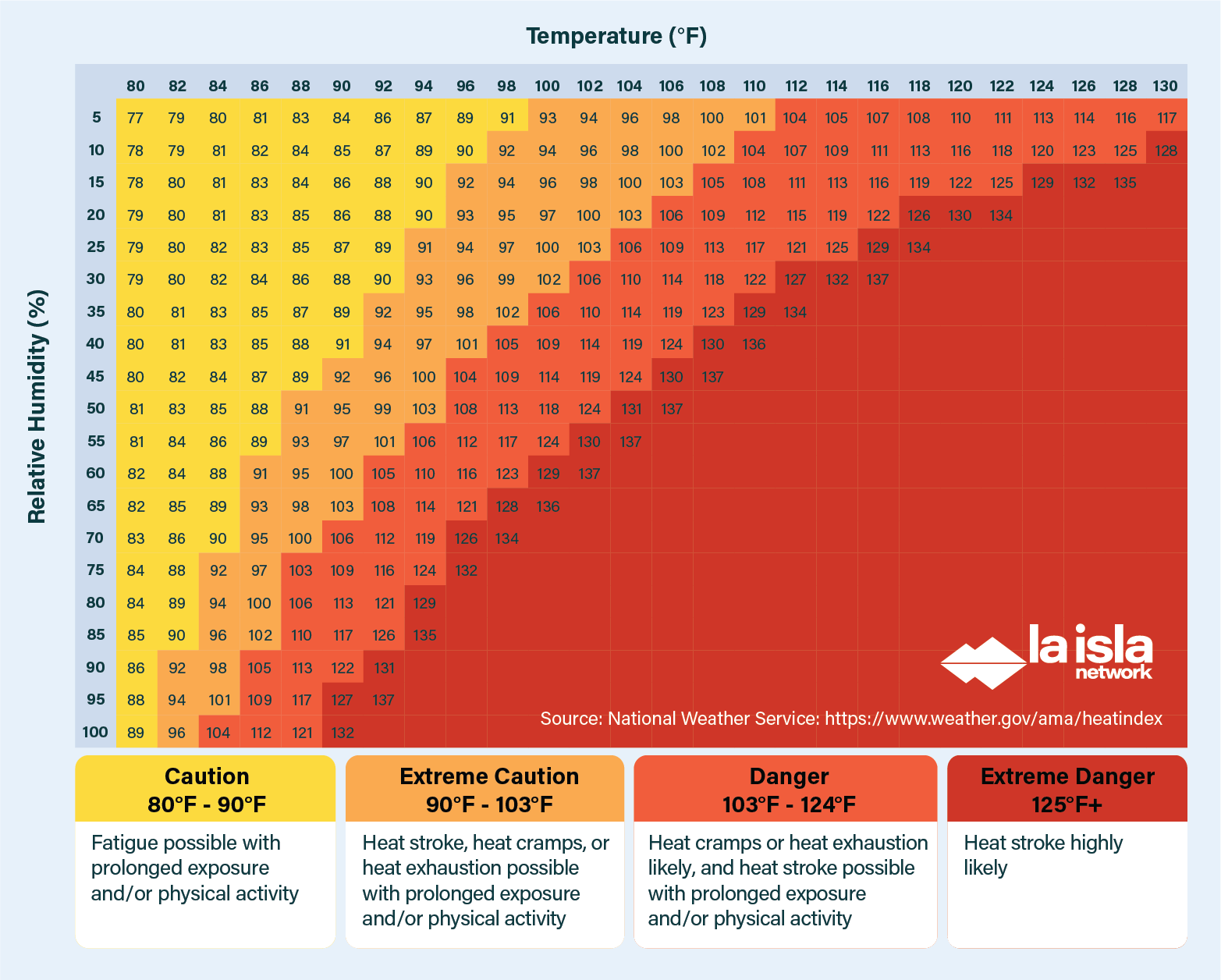
The study also found that the problem is addressable. Well-designed and well-implemented measures can mitigate heat stress when working hard in hot conditions. The Nicaraguan sugarcane mill, aided by La Isla Network researchers, have gradually introduced increasingly strict and well-implemented rest, shade and hydration interventions in the workforce over the past six years. During this time period, there was a pronounced decreasing trend in the number of workers experiencing acute kidney injury.
Denis Chavarría, M.D., MPH, is Occupational Health Manager at Ingenio San Antonio. He oversees the OSH program with La Isla Network.
He said, “By partnering with La Isla Network, we’ve developed pioneering OSH interventions that have made it possible to adapt work to climatic conditions, thus further protecting workers and also ensuring work efficiency. We’re confident our work together will be of immense value for other industries, particularly in countries that face similar conditions.”

The workforce at the sugarcane mill hospital in Nicaragua has a very high risk of chronic kidney disease, due to the hot climate and the heavy workload, said lead researcher Erik Hansson.
“The association between heat stress risk and hospitalization was in the expected direction, with a higher rate of hospital visits for acute kidney injury on very hot days and weeks. The likely magnitude of the association was much higher than seen in general, non-working populations in previous studies. Interestingly, the risk of a worker needing hospital care for acute kidney injury decreased during the six years of the study, in parallel with the increasing implementation of a rest-shade-hydration intervention.”
Hansson says these findings strengthen the case for a causal relationship between heat stress and kidney disease. Also, they indicate that heat stress-driven kidney disease can be prevented by implementing a well-designed and well-implemented rest, shade, hydration program. “Workers and employers need to be aware of the increased risk of acute kidney injury while working under hot conditions, adapt activities under such conditions, and make sure adequate preventive measures are well implemented,” he said.
The implications go beyond the workers studied. Performing a physically taxing job exposed to heat for hours is a shared reality among workers worldwide. The minimum number of workers worldwide exposed to excessive heat yearly is 2.41 billion, found a recent ILO report. That represents 70 percent of all workers globally.
Thank you for reading. La Isla Network is a research and advising organization protecting workers in a changing climate. We generate and implement data-driven worker protection and management assessment protocols. Our goal is to improve the resiliency of workforces and businesses to heat stress, and other climate-driven risks. For more information please contact in**@la***********.org .

